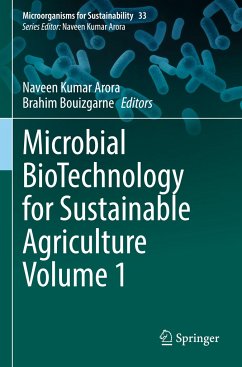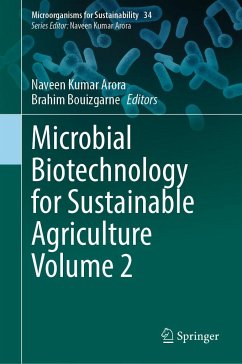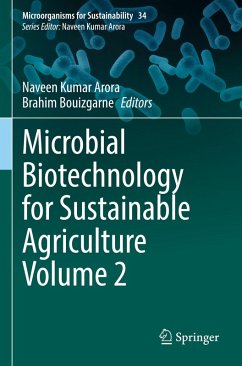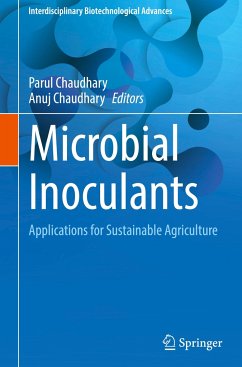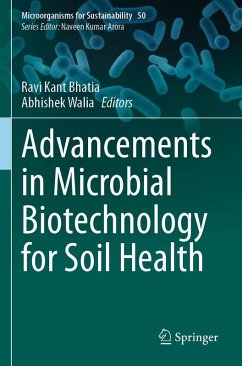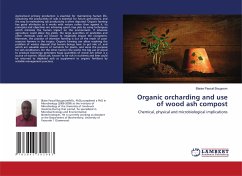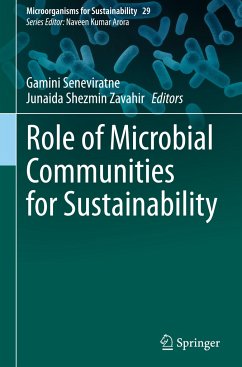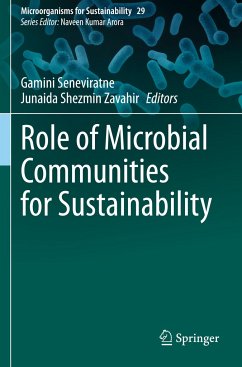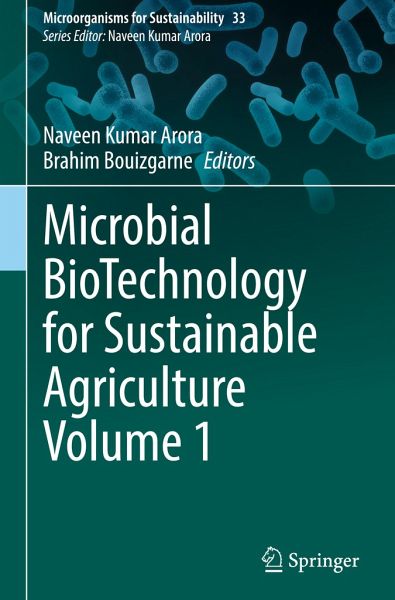
Microbial BioTechnology for Sustainable Agriculture Volume 1

PAYBACK Punkte
68 °P sammeln!
This volume explains the recent findings on the mutualistic plant-microbe interactions and how they can be utilized for sustainable agriculture practices including land reclamation. The book covers mainly plant growth promoting microorganisms (PGPMs) including both the symbiotic bacteria and fungi and their role in mobilization of nutrients, providing protection to the crops from phytopathogens and abiotic stresses.PGPMs play important roles in survival and health of the plant. These useful microorganisms provide plants with nutrients, protect them from pathogens and help them combat abiotic s...
This volume explains the recent findings on the mutualistic plant-microbe interactions and how they can be utilized for sustainable agriculture practices including land reclamation. The book covers mainly plant growth promoting microorganisms (PGPMs) including both the symbiotic bacteria and fungi and their role in mobilization of nutrients, providing protection to the crops from phytopathogens and abiotic stresses.
PGPMs play important roles in survival and health of the plant. These useful microorganisms provide plants with nutrients, protect them from pathogens and help them combat abiotic stresses. It is important that these mutualistic interactions between plant and soil microbes are well understood so as to develop reliable products in the form of biostimulants and biopesticides, as well as managing biotic and abiotic stresses in crops. Apart from enhancing crop productivity plant-microbe interactions can also perform activities such as reclamation of degraded lands, degradation of pollutants and remediation of saline or marginal lands.
This book is of interest to teachers, researchers, plant scientists and microbiologists. Also, the book serves as additional reading material for undergraduate and graduate students of agriculture, microbiology, biotechnology, ecology, soil science and environmental sciences.
PGPMs play important roles in survival and health of the plant. These useful microorganisms provide plants with nutrients, protect them from pathogens and help them combat abiotic stresses. It is important that these mutualistic interactions between plant and soil microbes are well understood so as to develop reliable products in the form of biostimulants and biopesticides, as well as managing biotic and abiotic stresses in crops. Apart from enhancing crop productivity plant-microbe interactions can also perform activities such as reclamation of degraded lands, degradation of pollutants and remediation of saline or marginal lands.
This book is of interest to teachers, researchers, plant scientists and microbiologists. Also, the book serves as additional reading material for undergraduate and graduate students of agriculture, microbiology, biotechnology, ecology, soil science and environmental sciences.



